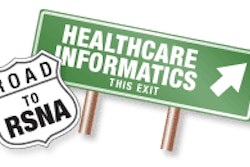Hospital IT departments are under escalating pressure to achieve stage 1 meaningful use of electronic health records and convert to the new ICD-10 medical reimbursement code, according to results of the annual Healthcare Information and Management Systems Society (HIMSS) Leadership Survey.
HIMSS released survey results on Tuesday at its annual meeting being held this week in Las Vegas. For the first time in years, lack of financial support for IT was not identified as an obstacle to implementation by the 302 healthcare IT executives who participated in the survey. Rather, a staffing shortage -- the inability to hire enough qualified IT professionals -- was identified as the leading obstacle to implementing IT goals.
More than two-thirds of the respondents, almost all of whom were hospital chief information officers or IT department directors, reported that they needed to increase their IT staff in 2012. The greatest levels of hiring will be for clinical informatics professionals, staff to support clinical decision-support initiatives, and IT professionals to provide network and architecture support.
Nearly 90% of respondents expect to complete their conversion to ICD-10 billing codes by the October 2013 deadline. This represents the most important project for financial IT systems.
Achieving the U.S. Centers for Medicare and Medicaid Services' (CMS) meaningful use requirements is also top of mind for the majority of respondents. For 25%, this represented the key business objective at their healthcare organization. One-fourth had already reached this goal and attested to that fact; another 33% expect to do so by June 2012.
Once stage 1 meaningful use is achieved, respondents are moving on to implementing computerized physician order entry and e-prescribing. These were cited by 15% of the respondents.
Maintaining security of electronic data is of great concern. One-fourth reported that their organization had experienced a security breach in the past 12 months, and one-third expressed concern that their organization's security systems were inadequate.
Approximately 34% of respondents indicated that their top concerns were being compliant with HIPAA security regulations and being able to pass CMS security audits. However, concerns were minimal about the ability of business advisors to maintain the security of data to which they had access, as were concerns over data breaches caused by a mobile device. The percentage of respondents who identified these as major concerns were 1% and 6%, respectively.
A copy of the 34-page survey report can be accessed by clicking here.



















